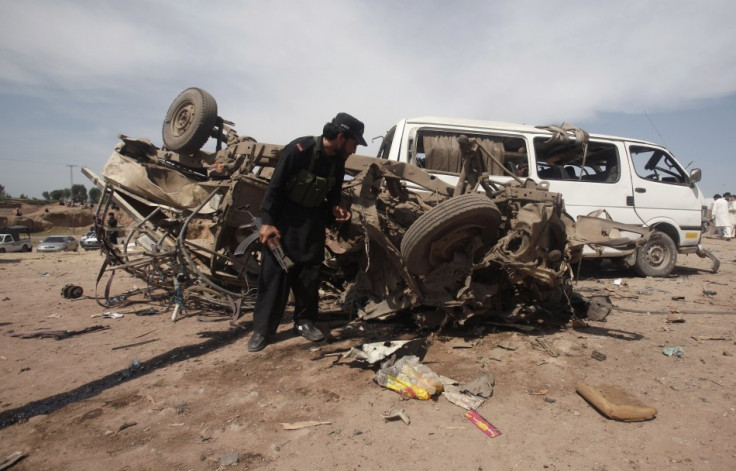Pakistan Shows No Sign of Waking From its Terror Nightmare

Since Pakistan's independence from India in 1947, a relentless and, all too often, violent tension has existed between national identity and the concepts of power and authority in the tribal regions. A significant portion of the Pakistani population, particularly outside urban areas, has known only historic loyalty to clan and broader ethnic groups, with cohesion further blurred by myriad cultural and social customs.
The deeply ingrained tribal culture has led to violent clashes with a series of ruling regimes and the enduring military institution, which sees itself as the guardian of national identity, seeking to foist the notion that a citizen is first Pakistani and loyal to the state, then Muslim, then a member of a specific tribe. This core problem, along with the military's creation and tolerance of militant groups in the fight against India, explains why Islamabad will continue its struggle with scores of terrorist groups inside Pakistan, despite the best intentions of Prime Minister Nawaz Sharif and opposition figurehead Imran Khan.
Sharif, now in his third term as prime minister, is trying a newish tact of coaxing negotiations aimed at bringing an end to tit-for-tat violence. However those on the other side are apparently, unsurprisingly, sending messages of negotiation from a position of strength-cum-extortion. When Sharif was last in office, he was seen as traitorously soft and conciliatory on India, specifically the status of Kashmir and Jammu; few people in Pakistan have forgotten this stance.
The scale of the task facing Sharif and Khan, a former cricket icon who has made great play of his 'four-point' plan to combat terrorism, is brought home by the sheer number of extremist movements in operation; some estimates suggest that up to 100 terrorist groups are operating around the country, including Tehrik-e-Taliban (TET), otherwise known as the Pakistani Taliban. And the issue is made even more complicated by ongoing attempts to negotiate prisoner exchanges, and the reported drone strike killing of two notable figures in the Haqqani Network, an Islamist insurgent group which operates on both sides of the Pakistan-Afghanistan border.
The reported drone strike killing of Badr al-Din Haqqani, sometime in August 2012, is significant and may portend near future acts of violence in Pakistan. Badr al-Din's brother, Saraj al-Din, runs the Haqqani Network-both are sons of Jalal al-Din, the Haqqani group founder and one of the four major warlords of the fight against the Soviets in the 1980s. This is notable in that silent-death-from-above continues to hunt Haqqani leaders (a drone strike killed another of Jalal al-Din's sons, Muhammad, in February 2010), and some observers point to the hornets' nest effect in the Federally Administered Tribal Areas.
The Haqqanis, since late 2001 at least, have been part of the Quetta Shura, lead by the Afghan Taliban's Mullah Muhammad Umar, and their animus has been primarily focused on Kabul and the foreign-allied coalition working for stability in Afghanistan. But with continued action by Washington against them-and Islamabad's tacit acquiescence in this action -the Haqqanis have been drawn into a fight on both sides of the Pakistan-Afghanistan border. To make matters worse, a recent drone strike killed Sangeen Zadran, a shadowy figure within the Haqqani movement who was a close associate of current TeT leader Hakimullah Masoud, a sworn enemy of the state of Pakistan.
One of the other current circumstances that may lead to broader violence-both in Afghanistan and Pakistan - is the increasing presence of Afghani Taliban elements in the north-east of their country, areas traditionally controlled by ethnic Tajiks and non-Pashtun Afghanis. When the Taliban held power in Afghanistan between 1996 and 2001, the forces of Ahmad Shah Masoud not only held off the militants but kept a firm group on the area, and even made advances toward the Taliban strongholds in the direction of Jalalabad and Kabul.
Now, reporting indicates Taliban elements have sought to create alliances with pockets of Tajiks in the area, to foster some form of mutual interest in gaining footholds in the north-east. Always striving to put a positive spin on events, Taliban communiqués claim it shows people of the area desire a return to pious living and to become free of corruption and god-less living - and call on their brothers in Pakistan to join the fray.
Agendas have been and will continue to be fluid, near-term, and varying. The Inter Services Intelligence, Pakistan's national level intelligence service, continues to exhibit ambivalence toward terrorism outside Pakistan, with the various groups it has sought to co-opt for its internal and external policy goals, such as Lashkar-e-Taiba (LeT) for leverage in Kashmir (LeK) against India. The LeT, for example, most recently organised a large protest in Islamabad agitating against drone strikes, though LeT figures are not known to have been in the crosshairs. Such groups show a persistent evil 'genie in a bottle' behavior, which will dovetail with the other factors to perpetuate Pakistan's terror menace.
Bob McFadden is a former US counter-intelligence agent and current vice-president of the Soufan Group, which provides strategic security intelligence services to governments and multinational organisations. Visit the group's website (https://www.soufangroup.com/) for more information.
© Copyright IBTimes 2025. All rights reserved.




















